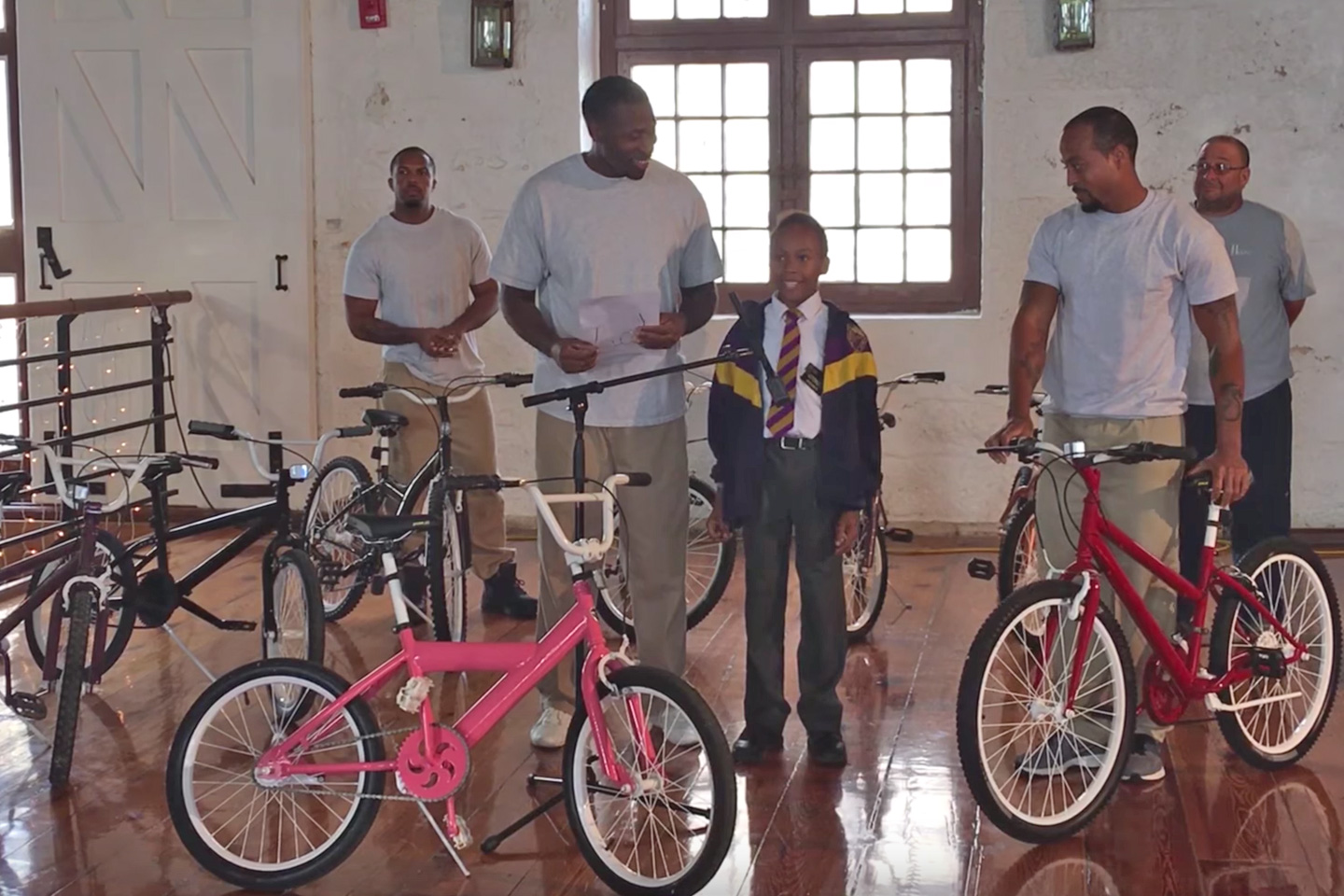In Bermuda, five prisoners defied expectations by repairing and restoring bicycles as gifts for children.


This article was originally published on Jan. 4, 2018. It has been updated with new artwork.
In this time of giving when many Americans look to support their favorite charitable causes, they frequently choose non-profits that provide toys to children of prisoners. However, this year in Bermuda, five prisoners defied expectations by repairing and restoring bicycles as gifts for children, according to the Royal Gazette.
The five men are serving time at the Westgate Correctional facility, and they’re making the most of their rehabilitation period. They are members of the prison’s “Lifeline” group, which provides inmates the opportunity to give back to their community. Gina Ingham, a volunteer coordinator working on the project, described it as “the perfect example of restorative justice.”
This past December, that work included refurbishing several bikes so that local children could enjoy them as early holiday presents. The project has been active for five years and many are quite pleased with it, from the prison administration, to local educators working with the children, to the prisoners as well.
A special ceremony was held in which the prisoners greeted the new cyclists and witnessed their subsequent expressions of joy. Mr. Roberts, one of the prisoners, said of the ceremony, “I’m a big man and I had to turn away because I had a tear coming . . . That’s the excitement.”
Roberts added, “It uplifts me knowing that I am giving something to somebody who really appreciates it and really loves it.”
The redemptive power of the experience is clear, as he says, “We’re doing this from our hearts, we’re helping children who are coming up and we don’t want them to make the mistakes we’ve made.”
Aside from the presents, the children involved received a valuable lesson in compassion. Those receiving the gifts come to know the men as human beings, capable of love, service, and generosity—far from the stereotypes of prisoners in poplar media. The prisoners themselves had the opportunity to build and express these very virtues through their work refurbishing and gifting the bicycles.
It may be natural to have a reflexive response to the situation: Who lets prisoners visit a school to give bikes to children?! Lisa Lorish, an assistant federal public defender in the Western District of Virginia, treats that concern in her essay, “Once and Always Criminal?” in The Hedgehog Review. She confronts this sensibility, our “unspoken presumptions of America’s criminal justice system [yet not confined to America]: once a criminal, always a criminal. This presumption too often becomes a self-fulfilling prophecy because of the collateral consequences those with criminal convictions face after release from incarceration.”
When children see redemption in real people, it shapes their moral imaginations. For high school English teachers who have the capacity and opportunity to teach it, there are few works that illustrate redemption like Les Miserables.
For further reading on CultureFeed